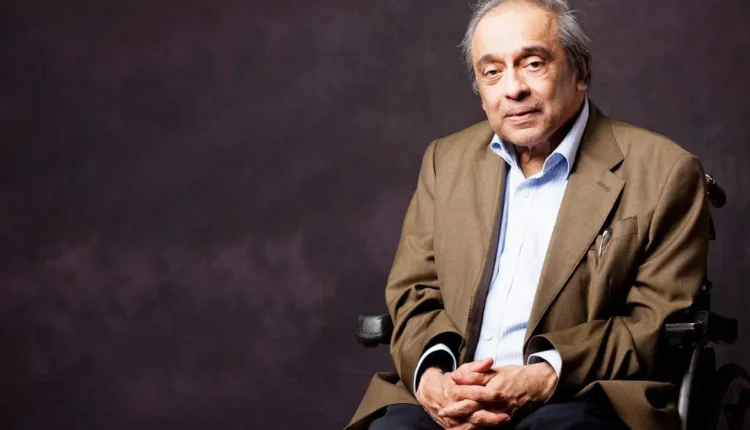Chandra Muzaffar :- In the tapestry of influential thinkers and activists, Dr. Chandra Muzaffar stands as a beacon of wisdom, dedicating his life to the pursuit of justice, human rights, and the delicate interplay between Islam and the modern world.
Born in 1947 into a Hindu family in Bedong, Malaysia, he later embraced Islam, becoming a prominent Malaysian Muslim political scientist and an advocate for Islamic reform.
Chandra Muzaffar: Educational Odyssey and Founding Aliran Kesedaran Negara
Dr. Muzaffar’s intellectual journey led him to Singapore University, where he earned his Ph.D. in Social Sciences in 1977. His commitment to justice and freedom materialized in 1977 when he founded Aliran Kesedaran Negara (Aliran), a multi-ethnic reform group in Malaysia.
For 14 years, Aliran served as a catalyst for awareness, fighting for justice, freedom, and solidarity in a nation grappling with ethnic complexities.
Global Impact as President of JUST
Transitioning from national to global advocacy, Dr. Chandra Muzaffar assumed the role of President of the International Movement for a Just World (JUST) in 1991.
JUST, a Malaysian human rights NGO, tirelessly endeavors to raise public consciousness on the moral and intellectual foundations of global justice. Dr. Muzaffar’s leadership at JUST aligns with his academic pursuits, contributing significantly to the discourse on civilizational dialogue, human rights, and international relations.
Academic Eminence and the Centre for Civilisational Dialogue
Dr. Muzaffar’s scholarly contributions are monumental. As the first Director of the Centre for Civilisational Dialogue at the University of Malaya, he facilitated dialogue on the intersections of civilizations. His tenure as the Noordin Sopiee Professor of Global Studies at the University of Science (USM) in Penang solidified his role as a thought leader in global studies.
Literary Legacy: A Tapestry of Insightful Works
The depth of Dr. Muzaffar’s insights extends to his extensive literary legacy. From seminal works like “Protector” (1979) to “Global Ethic or Global Hegemony?” (2005), his writings echo his commitment to exploring alternative political narratives for Asia and fostering Buddhist-Muslim dialogues.
The Evolution of Islam in Malaysia: A Conversation with Dr. Muzaffar
In a reflective interview, Dr. Chandra Muzaffar shares profound observations on the evolution of Islam in Malaysia over the past few decades. He highlights the impact of urbanization, emphasizing how Muslims sought to assert their identity in predominantly non-Muslim environments.
The nuances of this assertion, while occasionally leading to overemphasis on differences, underscore a quest for authenticity amid modernization and globalization challenges.
Misconceptions between Islam and the West: A Historical Perspective
Dr. Muzaffar delves into the historical factors contributing to misconceptions between Islam and the West. From the medieval Crusades to the legacies of colonialism, he traces the roots of misperceptions.
The geopolitical dynamics surrounding oil, coupled with the Israeli-Palestinian conflict, have further complicated relations, shaping the narrative of Islam as “the other” in Western societies.
Challenges of Colonialization: Impact on Muslim Identity
Discussing the impact of colonialization on the Muslim world, Dr. Muzaffar asserts that Muslims, like other colonized peoples, were victims on multiple fronts.
Beyond economic and political control, the insidious colonization of the mind became a formidable challenge. This intellectual subjugation prompted a resilient Muslim response to reassert identity against colonial dominance.
Globalization and Its Cultural Impacts on Islam
Dr. Chandra Muzaffar dissects the multifaceted impacts of globalization on Islam. From the cultural dimension, where Muslims express concern about Western values permeating their societies, to the geopolitical sphere dominated by the West, he articulates the apprehensions of exclusion from the global narrative. The interview captures the complexity of Muslim reactions to a changing world.
Navigating the Value Crisis: Two Trends within Islam
Examining Muslim reactions to the contemporary value crisis, Dr. Chandra Muzaffar delineates two major trends. The dominant trend tends to be negative, characterized by exclusivity, inward-looking perspectives, and occasional aggression.
In contrast, a subordinate trend, though nascent, champions a universal approach. This inclusive vision seeks to reassert the essence of Islam, emphasizing its universalism, inclusiveness, and adaptability.
The Progressive Vision of Universal Islam: A Paradigm Shift
In a captivating revelation, Dr. Chandra Muzaffar unveils the progressive, reformist vision of a universal form of Islam. This vision sees Islam as a force for inclusivity, embracing change while retaining the essence of faith. It champions equality for women, equal rights for minorities, and the emphasis on universal values that forge connections beyond religious boundaries.
The Challenge of Interpretation: Bridging Tradition and Creativity
Dr. Chandra Muzaffar recognizes the challenge in interpreting sacred texts. He notes a conservative trend among clerics, emphasizing the need for a creative approach rooted in fundamental principles.
The process requires a departure from a literal application of past laws, urging scholars to critically assess contemporary situations and envision changes that align with the core values of Islam.
Emerging Voices and the Role of Women in Interpretation
Identifying three sources of this progressive interpretation, Dr. Chandra Muzaffar points to the pivotal role played by women theologians. Women, concerned not only with their roles but also broader challenges facing the Muslim world, advocate for a reinterpretation that transcends gender boundaries. Their voices echo a call for a more inclusive and universal Islam.
Also Read :- Mandip Kaur Gill: The Rise from Soap Opera to Sci-Fi Icon

